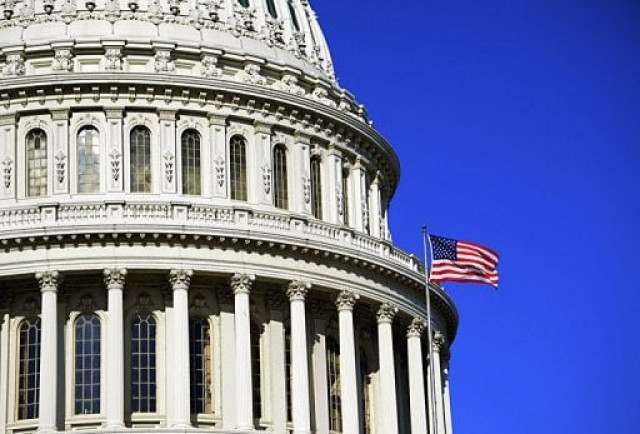American kamikaze: US narrowly averts default
A Democratic leader dubbed the debt ceiling deal as a “Satan sandwich”.

It took months of debate, statements, proposals and press conferences that provided fodder for news bulletins and comic gold for late night comedy shows, but on Tuesday afternoon, the United States Senate finally passed the debt-ceiling bill, less than 24 hours after the US House of Representatives passed the bill.
The debt ceiling bill, passed by a vote of 74-26 in Senate, will now be sent to President Obama for his signature, who must sign it before midnight to avoid the United States to default on its obligations, though it may be too late to avoid a downgrade of the country’s credit rating.
(Read: US ‘almost out of time’ for deal, Obama)
The debt-ceiling bill proposes cutting over $2 trillion in spending over the next decade, while raising the debt-ceiling limit i.e. how much the United States can legally borrow by nearly the same amount from its current figure of $14.3 trillion.
But according to many in Washington, this bill was not just a bill. With a House of Representatives controlled by Republicans, and being subject to the ideology and demands of the extreme right-wing Tea Party faction, and a Senate controlled by Democrats, it took weeks for a decision to be reached, representing what many describe as the new dysfunction in the US political system.
The Republicans wanted no changes to taxes, and proposed cuts in Social Security, the pension programme for elderly Americans, and Medicare, the healthcare programme designed to assist Americans over 65 years of age.
The Democrats, many of whom reportedly did not agree with the President’s push to “compromise”, wanted less spending cuts and an increase in taxes on the wealthy. The acrimony felt by some Democrats on the President urging for a compromise and agreeing to take taxes off the table got to the point that a Democrat leader dubbed the debt ceiling deal as a “Satan sandwich”.
In Monday’s vote in the House of Representatives, only half of the Democrats in the House voted in favour of the debt-ceiling bill. The bill was passed by a vote of 269-161, with 66 Republicans voting against the proposal, a number that almost exactly corresponds with the size of the Tea Party faction.
The spending cuts, which will be agreed on by a bipartisan committee, could range from defence to social security, as well as an overhaul of the tax codes, that would help identify the loopholes present at the moment – however, if the committee does not agree to the cuts, triggers in the legislation will automatically place cuts between defence and domestic spending.
Addressing the press on Monday, White House Press Secretary Jay Carney said, “Social Security, Medicaid and beneficiaries in Medicare would be excluded from any harm. The whole point of the trigger is that nobody wants to do them and that it’s equally onerous for both sides. And that, again, creates greater potential for the committee’s action to bear fruit.”
Last week, President Obama urged compromise, and addressing the nation said, “We can’t allow the American people to become collateral damage to Washington’s political warfare.”
Addressing a press conference on Tuesday, shortly after Senate passed the bill, the President said that voters may have voted for a “divided government” but they did not vote for a “dysfunctional government.”
(Read: Obama asks parties to ‘work together’)
The Associated Press and Reuters both report that President Obama has already signed the bill into law.
But the damage to the US credit rating may already have taken place. The Wall Street Journal reports that price of credit default swap contracts – or the cost of insuring against the likelihood of default – for US government bonds is now higher than that for Brazilian government bonds. (With additional input from agencies)
Published in The Express Tribune, August 3rd, 2011.



















COMMENTS
Comments are moderated and generally will be posted if they are on-topic and not abusive.
For more information, please see our Comments FAQ